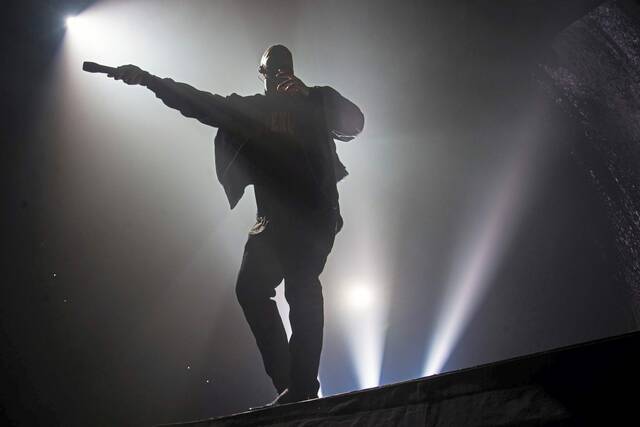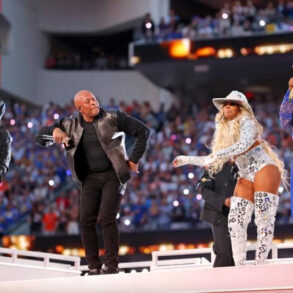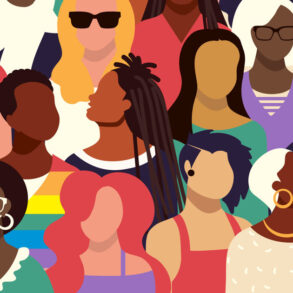
The North Side’s Paradise Gray was a young boy growing up in the Bronx when what would become known as hip-hop began taking shape.
“We didn’t call it hip-hop back then; that wouldn’t happen until later. But the music, the culture was everywhere. There were literally hundreds and hundreds of DJs bringing their equipment out in the streets all over the city,” said Gray, 59, a co-founder of Pittsburgh’s 1Hood Media, who serves as chief curator of the $80 million Universal Hip Hop Museum opening in the Bronx next year.
“They gave us the soundtrack of our lives,” Gray added.
One of those many DJs, Kool Herc, is today recognized by many as a founding father of the musical genre. And one party that Kool Herc rocked with two turntables, a mixer and some rhymes on Aug. 11, 1973 — 50 years ago today — is now regarded as the moment when hip-hop was born.
Many estimates say the event in the community room of an 18-story apartment building on Sedgwick Avenue attracted about 300 people. Guys had to pay 50 cents to get in, girls just a quarter.
While hip-hop started in predominantly Black, underserved communities, today hip-hop, combined with R&B, is America’s most popular musical genre. It has spread across the globe and become a cultural force influencing fashion, sports, education, business, politics and, well, pretty much everything. As it has continued to grow and flourish, other once-popular music genres that emerged after hip-hop — disco, hair metal and grunge, to name a few — have become all but extinct.
Gray says recognizing one party as the birth of hip-hop is “arbitrary,” noting that the music and culture had been “percolating all over New York” for several years before the DJ Kool Herc party. But every history, every movement needs to have a starting point.
“More power to (DJ Kool Herc). He really did have the whole package and a big sound system that separated him from everyone else. I witnessed it with my own eyes,” said Gray, who worked as a record boy for DJs of the era including Disco King Mario and Grand Imperial DJ Jaycee and would later become the head talent booker at Manhattan’s Latin Quarter nightclub where hip-hop icons such as KRS-One, Public Enemy and LL Cool J got their starts. He also was an original member of the activist hip-hop collective X Clan.
“I’ve participated in every era of hip-hop, including today,” Gray said.
Gray isn’t one of those older people who is critical of how some of the music has evolved, as some have been of subgenres such as mumble rap.
“I love it whenever young people’s music is pissing the older people off. The way I look at it, if you don’t know what they’re saying or talking about, then they might not be talking to you,” Gray said.
“That’s what hip-hop has always been about. It’s always been a way for young people to express themselves.”
Jasiri X, a Pittsburgh rapper, activist and co-founder of 1Hood Media, remembers the moment when hip-hop began to change his life.
“I remember being in the back seat of a car in Newark when I heard Mobb Deep’s ‘Shook Ones (Part II).’ I just remember hearing the first verse and it gave me chills. It was like everything else stopped,” said Jasiri X, who estimates he was 10 or 11 at the time.
“That made me say, ‘Wow, I want to create something that gives someone else that same feeling,” he said.
Jasiri X said his connection to hip-hop deepened after he moved with his mother from what he said was an all-Black neighborhood on the South Side of Chicago to Monroeville, which is largely white.
“As a young person, you want to assimilate. Hip-hop culture helped me maintain my Blackness and Black consciousness. It also made me interested in Islam. I learned about Islam through hip-hop,” he said.
“I was later able to use it to improve my community, to teach education, to teach activism, to teach young people to build their consciousness, to help people get elected,” said Jasiri X, who gained notoriety with activist songs including “Free the Jena 6” about six Black teens who were convicted in the beating of a white teen in Louisiana, and “Trayvon,” which addressed the killing of Black teen Trayvon Martin in Florida.
As for Pittsburgh’s place in the hip-hop universe, Jasiri X said Wiz Khalifa and the late Mac Miller both rose from Allderdice High School in Squirrel Hill to become international superstars, which “shows you can come from Pittsburgh and change the world.”
He said a host of other local artists have made an impact, including Mel-Man, Sam Sneed, Boaz, Tuffy Tuff, Fedd the God, Hardo and many others.
“Pittsburgh has an underrated history, but it has definitely contributed to the national hip-hop scene,” Jasiri X said.
East Liberty’s Frzy, 37, is a contemporary rapper doing just that as he splits his time between Pittsburgh and California.
Frzy is perhaps most well-known for setting a Guinness world record for freestyle rapping for 31 straight hours in 2020, but he has toured and performed with a host of prominent acts and won a regional Emmy Award for his collaboration with WQED-TV on his hip-hop version of “Won’t You Be My Neighbor?” for the 50th anniversary of “Mister Rogers’ Neighborhood.” In November, Frzy, his band The Faculty, DJ Solo and the Pittsburgh Symphony Orchestra will collaborate on a concert called “The Glorious Succession of Frzy,” an orchestration of his soon-to-be-released album “Success.”
“For me, it’s exciting,” Frzy said of the 50th anniversary of hip-hop. “It kind of feels like hip-hop can be my father. I’m a part of the culture.”
Although hip-hop has been around for a half-century, Frzy said the genre “is still adapting and still finding its sound.”
“It’s different from the oldies or jazz. Our people are still alive, doing their thing. Jay-Z is my idol, but he’s also my competition. It’s like I’m celebrating the owner of a company that I hope is passed down to me someday,” he said of hip-hop.
The City of Pittsburgh, along with 1Hood, Bounce Limited and Tech25, will join together to hold an anniversary celebration of hip-hop from 3 to 7 p.m. today in Downtown’s Market Square.
While in decades past some politicians and others dismissed hip-hop as a fad and were highly critical of the genre, Pittsburgh Mayor Ed Gainey embraces it.
“Hip-Hop created a culture that everyone in the world continues to copy,” Gainey said in a statement announcing the celebration. “It’s a generational musical movement that addressed so many ills happening at the time when it was crafted. It also provided space for expression for so many young people. It was the music, DJ, dance and yes, even the graffiti tags that broke down barriers.”
Tom Fontaine is a Tribune-Review digital news editor. You can contact Tom by email at tfontaine@triblive.com or via Twitter .







